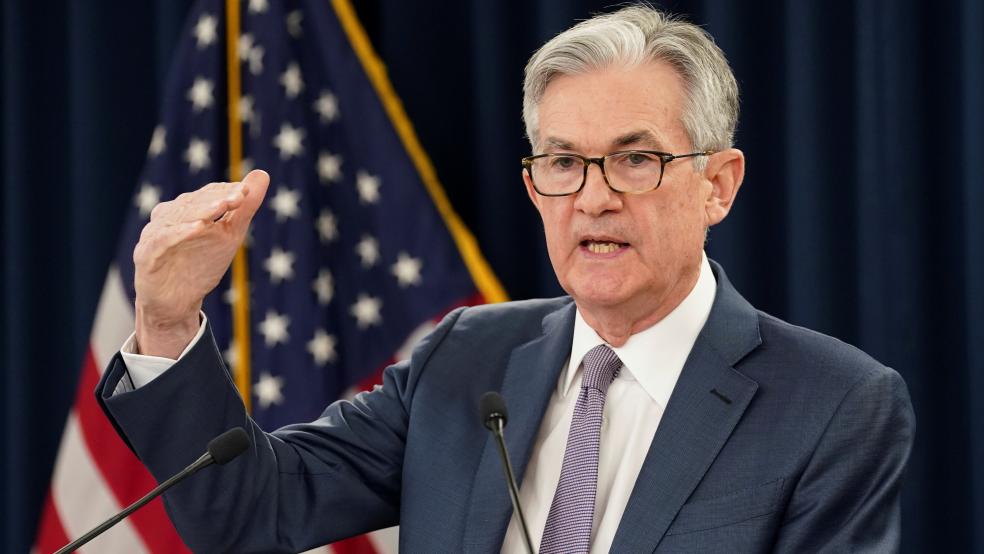The Federal Reserve announced Wednesday that it was keeping interest rates near zero for now but indicated that it may raise rates sooner than previously expected in response to strong growth and rising inflationary pressures.
“Progress on vaccinations has reduced the spread of COVID-19 in the United States,” the Federal Open Market Committee said in a statement. “Amid this progress and strong policy support, indicators of economic activity and employment have strengthened.”
The Fed raised its estimate of economic growth to 7% for 2021, which would be the fastest annual rate since 1984. Growth is expected to drop off after this year, falling to a still robust 3.3% in 2022 and 2.4% in 2023.
The rapid growth has been accompanied by higher-than-expected inflation as the economy struggles to get back on its feet, and central bank officials now see the inflation rate rising to 3.4% by the end of the year, a full percentage point higher than the previous estimate in March.
Still, the Fed said it continues to believe that the spike in inflation is temporary, “largely reflecting transitory factors” such as supply shortages and labor market dislocations. The headline inflation rate is projected to drop to 2.1% in 2022 and 2.2% in 2023.
With respect to interest rates, the projections provided by the Fed indicate that a majority of FOMC officials now expect to raise the benchmark short-term rate two times by the end of 2023, to 0.6%. In March, projections showed interest rates staying near zero into 2024.
Holding steady on support: The FOMC said it remains committed to purchasing at least $80 billion of Treasury securities every month, as well as $40 billion in agency mortgage‑backed securities, with those purchases continuing “until substantial further progress has been made toward the Committee's maximum employment and price stability goals.”
At a press conference, Fed Chair Jerome Powell that “policy will remain highly accommodative” even as the economic numbers improve. Inflation has been below the 2% target rate for years, Powell said, and the bank does not want to slam on the brakes just because inflation climbs above the target for a period of time. An inflation rate above the target could still be in line with the bank’s long-term goals, as long as the average is still on target.
At the same time, the Fed is ready to act if inflation moves higher than expected over a longer period. “If we saw signs that the path of inflation or longer-term inflation expectations were moving materially and persistently beyond levels consistent with our goal, we'd be prepared to adjust the stance of monetary policy,” Powell said.
The bottom line: The economy is recovering rapidly but is not yet out of the woods. While inflation is higher than expected, the Fed plans to give the economy plenty of room to run rather than risk a premature tightening.




